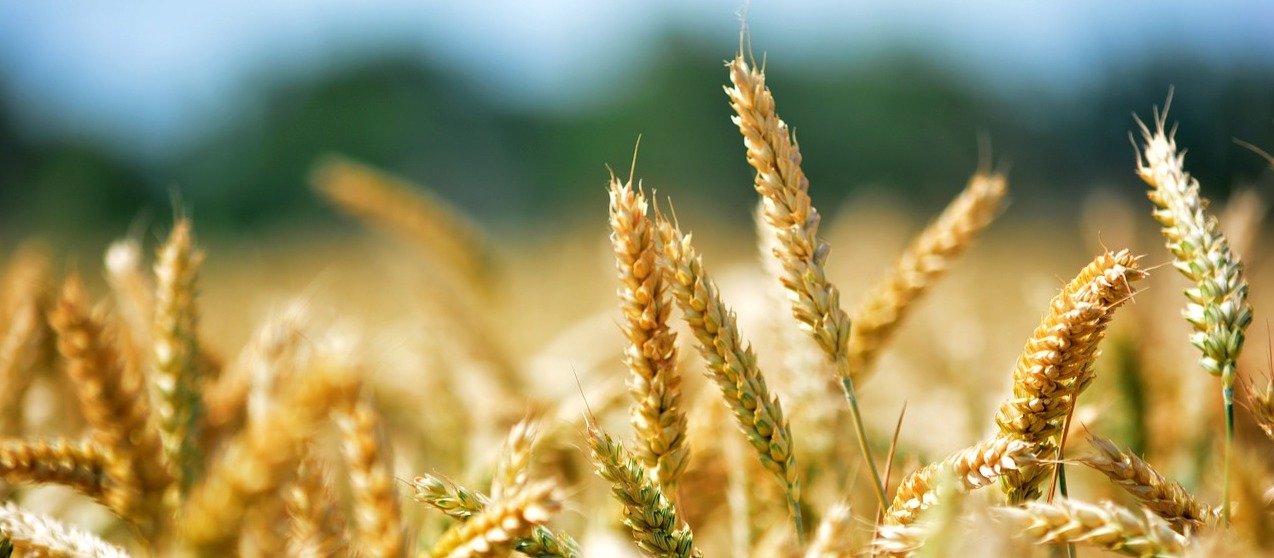
Will the argri-tech revolution have the same impact that the green revolution of the 1950’s and 60’s had on farming? Will it help us into a more sustainable and more healthy way of living? As well as improving crop yields, a high-tech approach to farming promises might help farmers take better care of the environment. For example, small autonomous tractors and other equipment could do less damage to the soil and make better use of steep or oddly-shaped fields, or help in areas where only some patches of the soil needs fertiliser or water.
For some farmers, the idea of letting robots loose on the crops might sound like the beginning of the end, but many arable farms already hire contractors to do the work with large specialist machinery that would be too expensive for an individual farm to own. These big tractors often use GPS to plot their course around a field with minimal input from the driver.
It’s good to be optimistic from time to time. Are we only a small step away from reducing the size of the machinery and automating it completely? Contractors could then perhaps get out of the cab and become land-management advisors. Their main job could become gathering data – no doubt by eye, but also with some help from other pieces of tech – helping farmers to find ways of improving soil quality, biodiversity and the water cycle. Better soil quality means better nutrition, and improved health all-round. The final challenge would then be sharing data in a way that helped both the famer and retailer, cutting food waste without jeopardising the interests of either.
I hope we can celebrate the argri-tech revolution and its contribution to the health of our planet and all its inhabitants in the years to come. In the meantime, it is still worth celebrating the provision of food. I haven’t had to sweat long hours over crops, and I definitely don’t have the muscles of a farmer, so I’m not as ready for (or deserving of) a rest and a party as I could be – but I can still be very thankful for my food.
The Biblical book of Deuteronomy contains a description of what very early harvest festivals should have been like. “Celebrate… for seven days. Be joyful… you, your sons and daughters, your male and female servants, and the Levites, the foreigners, the fatherless and the widows who live in your towns”.
These festivals were also an expression of gratitude to God: “celebrate the festival to the Lord your God at the place the Lord will choose. For the Lord your God will bless you in all your harvest and in all the work of your hands, and your joy will be complete.” This was also a time for the Jews to remember God bringing them out of Egypt and though forty years in the desert by building small shelters and living in them for a few days. This annual feast of Tabernacles, or Sukkot, was a real holiday, with two whole days off and seven days of feasting – and this year it’s on 13-20thOctober.
Reading through the Psalms recently I have been struck by how simple, in a sense, God wants our relationship with him to be. He wants us to acknowledge him, obey him, express gratitude to him for the things he gives us, and turn to him when we are in trouble. We are to live our lives toward him, and a bit of grateful partying should be part of that process. The account in Deuteronomy says that “No-one should appear before the Lord empty-handed: each of you must bring a gift in proportion to the way the Lord your God has blessed you.” We no longer offer need to sacrifices or thank-offerings to God, but it stands to reason that those of us who live in countries where food is plentiful and cheap could do with being proportionately more generous in our gratitude and giving than those where life is more of a struggle. Should we throw better harvest parties? Probably!
I don’t remember the last time I intentionally paused for a few days to enjoy the things God has provided for us and celebrate his goodness. We have feast times and holidays to remember events like Christmas and Easter, but perhaps it’s time to revive harvest, even if we aren’t that involved in agriculture. It might need a bit of reinvention, and now we can get all kinds of crops all year round it needn’t necessarily be in the autumn. Pressing pause to remember a process so dependent on weather and natural processes would also be a good antidote to the busy lives that we often live, reminding us that there is a great deal out there that does not depend on us to keep it going.
A modern-day harvest celebration might also involve encouraging those involved agriculture and developing new agricultural technologies, as well as enjoying what we can learn about and benefit from in God’s creation through science. Who knows, we may be able to celebrate a farming revolution in the years to come – whether it involves high tech solutions or something simpler!
We eat so well already in this country that feasting doesn’t require much ramping up on a normal meal. The added ingredient would be to take a decent chunk of time out to eat with others and celebrate before God – maybe combined with a holiday. So before we head off to our Sunday services where harvest is no longer celebrated, or put together a pretty harvest display for the front of the church building, maybe it’s time to think about how we can party well before God.

© Faraday Institute
Ruth Bancewicz is Church Engagement Director at The Faraday Institute for Science and Religion. She studied Genetics at Aberdeen and Edinburgh Universities, and spent two years as a part-time postdoctoral researcher at the Wellcome Trust Centre for Cell Biology in Edinburgh, while also working as the Development Officer for Christians in Science. Ruth is a trustee of Christians in Science, and a Fellow of their US counterpart – the American Scientific Affiliation.




